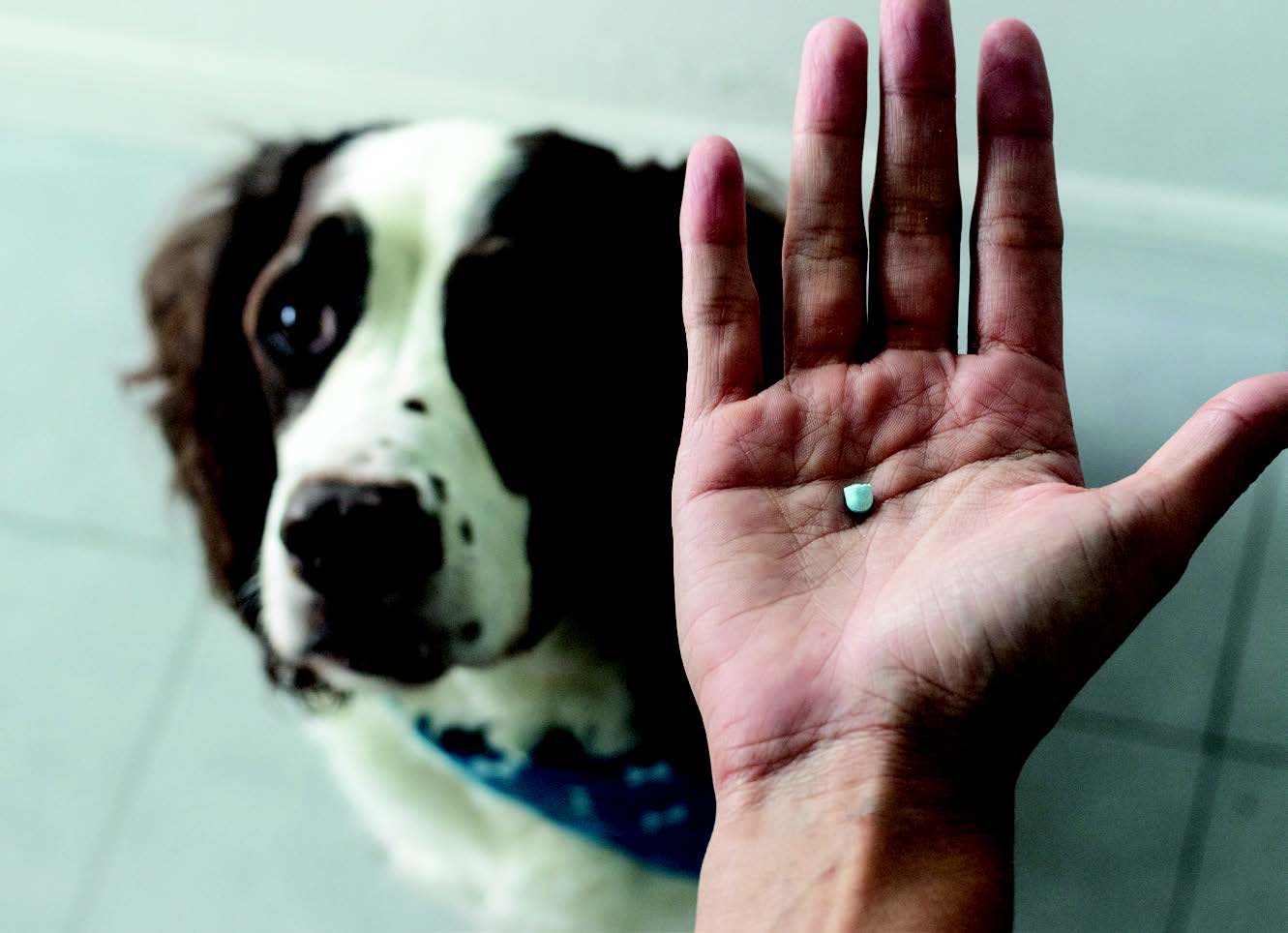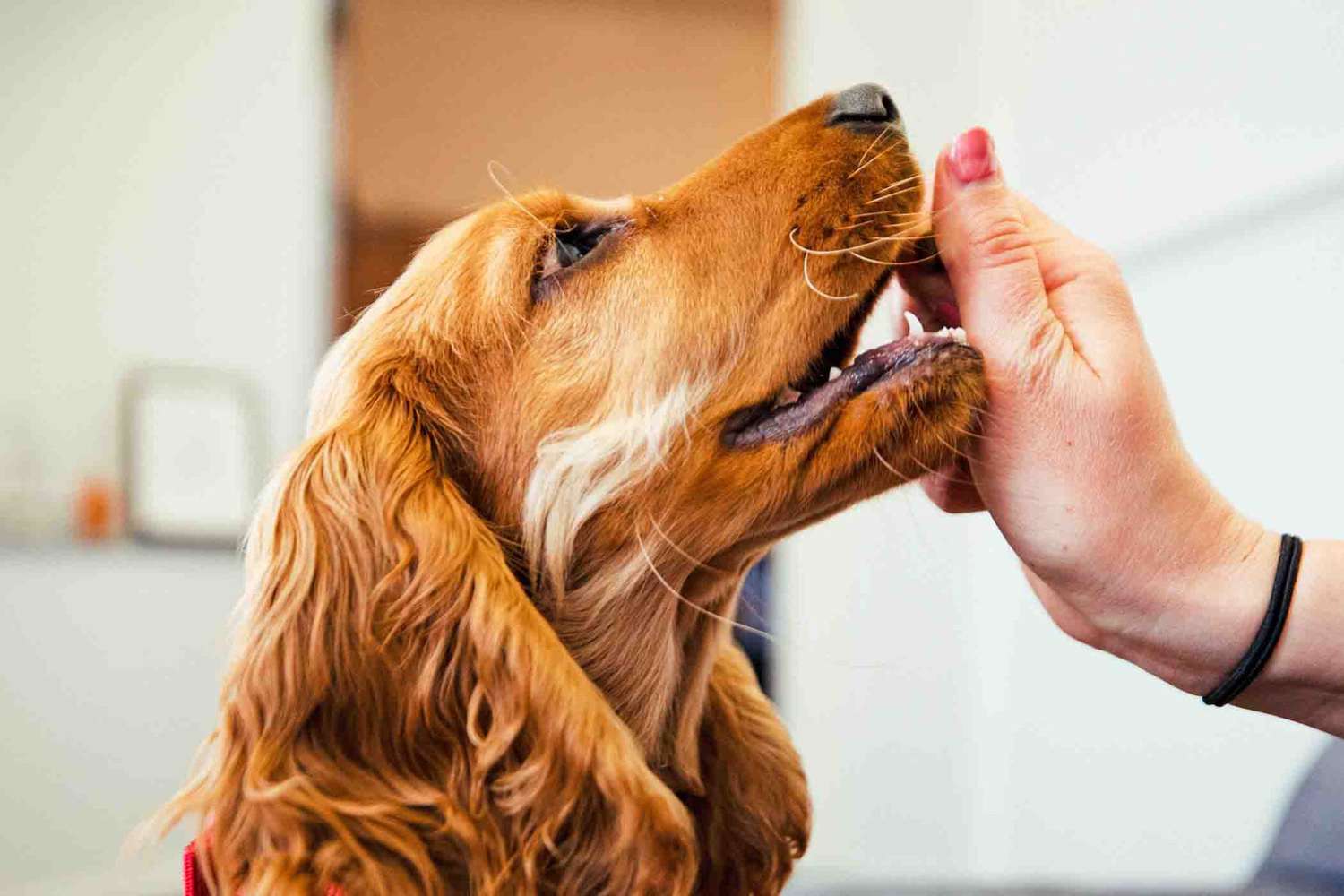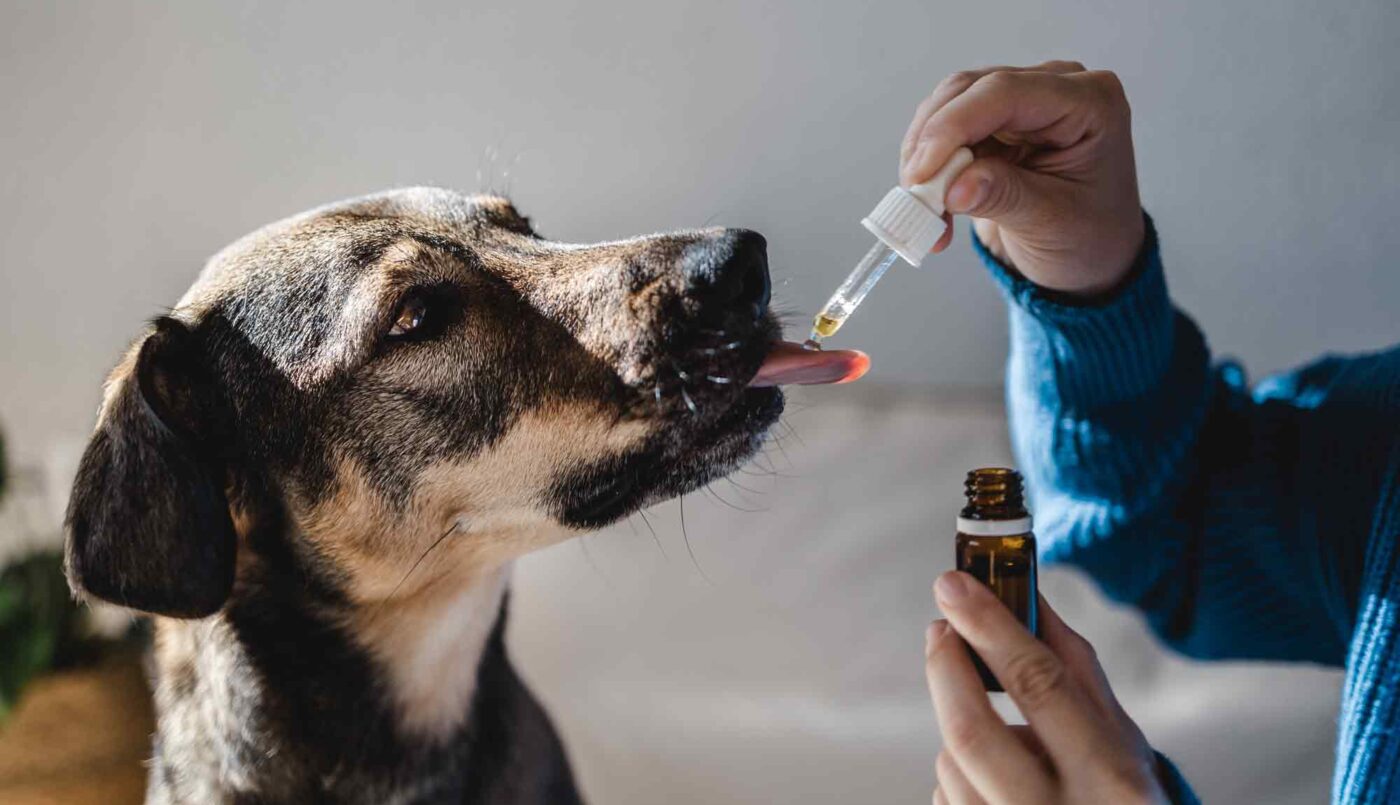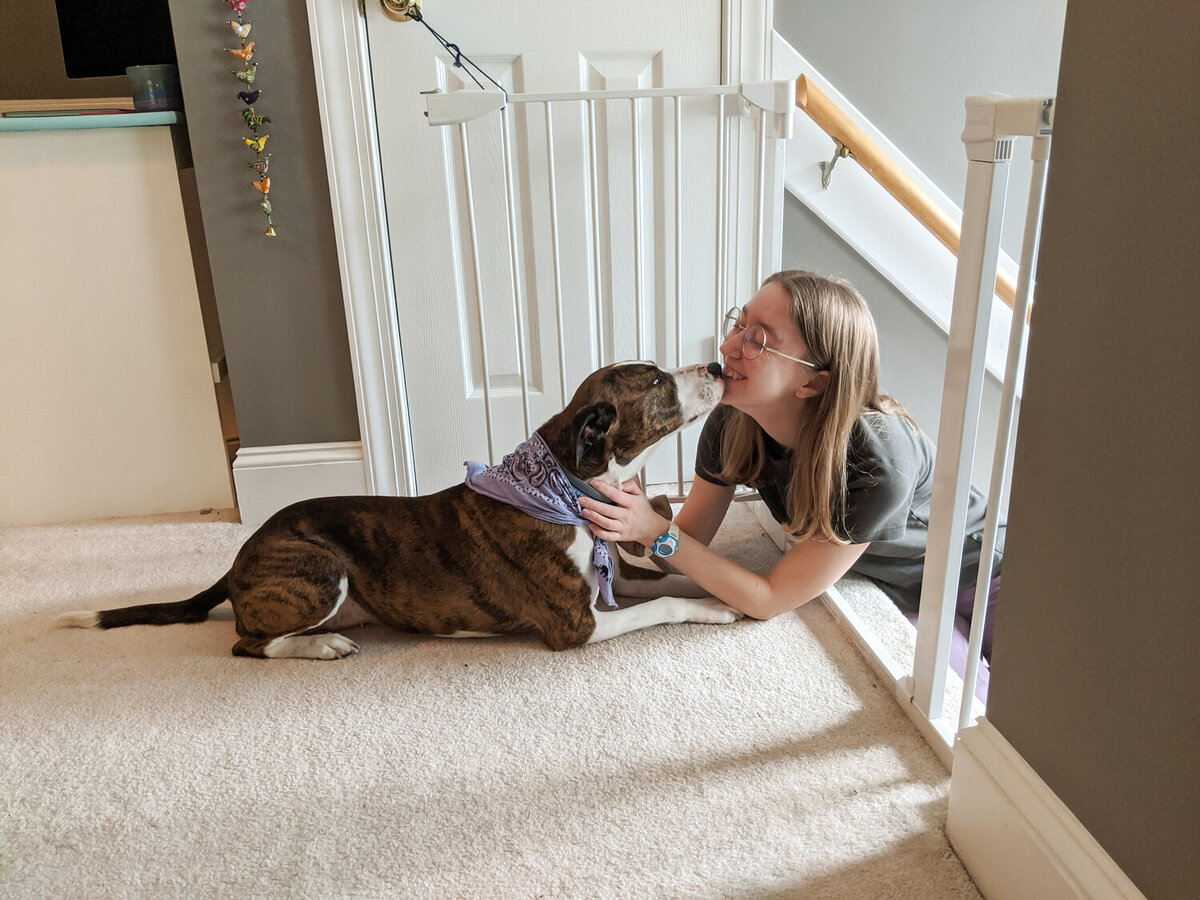Home>Health & Wellness>Behavior & Cognitive Care>What Medicine Can You Give A Dog For Separation Anxiety


Behavior & Cognitive Care
What Medicine Can You Give A Dog For Separation Anxiety
Published: January 29, 2024
Learn about the best medicine for separation anxiety in dogs and how behavior and cognitive care can help alleviate their distress. Find effective solutions for your pet's well-being.
(Many of the links in this article redirect to a specific reviewed product. Your purchase of these products through affiliate links helps to generate commission for Pawsomeoldies.com, at no extra cost. Learn more)
Table of Contents
Understanding Separation Anxiety in Dogs
Separation anxiety is a common behavioral issue that affects many dogs when they are separated from their owners or left alone. Dogs are social animals and form strong emotional bonds with their human companions. When these bonds are disrupted, it can lead to distress and anxiety in dogs.
Signs of separation anxiety in dogs can manifest in various ways, including excessive barking, howling, destructive behavior such as chewing or digging, pacing, and attempting to escape. Some dogs may also exhibit symptoms of distress such as panting, drooling, and urinating or defecating indoors.
It's important to recognize that separation anxiety is not a result of disobedience or spite. Instead, it stems from the dog's emotional distress when separated from their trusted human family members. Understanding the underlying causes of separation anxiety is crucial in addressing and managing this issue effectively.
Several factors can contribute to separation anxiety in dogs, including changes in routine, traumatic experiences, lack of proper socialization, or being rehomed. Additionally, certain breeds are more prone to developing separation anxiety, especially those known for their strong attachment to their owners.
To help dogs cope with separation anxiety, it's essential to provide them with a safe and comfortable environment, along with positive reinforcement training to help them associate being alone with positive experiences. Building a gradual routine for departures and arrivals can also help reduce the stress associated with separation.
By understanding the nature of separation anxiety in dogs and recognizing the signs and contributing factors, pet owners can take proactive steps to support their canine companions and improve their overall well-being.
Read more: What Medicine Can You Give A Dog For Anxiety
Common Medications for Treating Separation Anxiety in Dogs
When it comes to addressing separation anxiety in dogs, medications can be a valuable component of a comprehensive treatment plan. While behavioral modification and environmental management are fundamental, some dogs may benefit from the use of medications to alleviate their distress and facilitate their ability to cope with being alone.
-
Selective Serotonin Reuptake Inhibitors (SSRIs): These medications, including fluoxetine and sertraline, are commonly prescribed to manage separation anxiety in dogs. SSRIs work by increasing the levels of serotonin in the brain, which can help regulate mood and reduce anxiety. They are often used in conjunction with behavior modification techniques to address the underlying emotional issues contributing to separation anxiety.
-
Tricyclic Antidepressants (TCAs): TCAs such as clomipramine are another class of medications that can be effective in treating separation anxiety in dogs. Similar to SSRIs, TCAs work by altering the levels of neurotransmitters in the brain, leading to a calming effect that can help mitigate the symptoms of anxiety. These medications are typically administered under the guidance of a veterinarian and may require regular monitoring to assess their efficacy.
-
Benzodiazepines: In some cases, short-term use of benzodiazepines like alprazolam may be recommended to provide immediate relief for dogs experiencing acute distress due to separation anxiety. These medications have a sedative effect and can help alleviate anxiety symptoms, but they are generally used sparingly due to the potential for dependency and side effects.
-
Nutraceuticals: Certain nutritional supplements, such as L-theanine and alpha-casozepine, have been found to have calming effects on dogs and may be used as adjunctive treatments for separation anxiety. These natural compounds can help promote relaxation and reduce stress without the sedative effects associated with traditional medications.
It's important to note that the use of medications for separation anxiety in dogs should always be guided by a veterinarian. A thorough evaluation of the dog's overall health, behavior, and specific anxiety triggers is essential to determine the most appropriate medication and dosage. Additionally, close monitoring and regular follow-ups are crucial to assess the dog's response to the medication and make any necessary adjustments to the treatment plan.
In conjunction with medications, it's essential to continue implementing positive reinforcement training, environmental enrichment, and a supportive routine to help dogs gradually acclimate to being alone. By combining medications with a holistic approach to addressing separation anxiety, pet owners can provide their canine companions with the comprehensive support they need to thrive.
Over-the-Counter Options for Managing Separation Anxiety
In addition to prescription medications and behavioral interventions, there are over-the-counter (OTC) options that can be considered for managing separation anxiety in dogs. These OTC remedies are often used as complementary approaches to support a dog's emotional well-being and help alleviate symptoms of anxiety. It's important to note that while OTC options can be beneficial, consulting with a veterinarian is crucial to ensure their safety and effectiveness for individual dogs.
1. Calming Supplements
Calming supplements, such as chamomile, valerian root, and melatonin, are commonly used to promote relaxation and reduce stress in dogs. These natural remedies can be found in various forms, including chews, treats, and liquid formulations. Chamomile is known for its soothing properties, while valerian root has been traditionally used to alleviate anxiety. Melatonin, a hormone that regulates the sleep-wake cycle, can also aid in promoting a sense of calmness in dogs.
2. Pheromone Products
Pheromone-based products, such as diffusers, sprays, and collars, can help create a calming environment for dogs experiencing separation anxiety. These products mimic the natural pheromones produced by nursing mother dogs, promoting a sense of security and comfort. By diffusing these synthetic pheromones in the home environment, dogs may experience a reduction in anxiety-related behaviors and feel more at ease when left alone.
3. Herbal Remedies
Herbal remedies, including lavender and passionflower, are known for their calming effects on dogs. Lavender, with its gentle fragrance, has been associated with stress reduction and relaxation in canines. Similarly, passionflower is recognized for its anxiety-relieving properties and can be administered in various forms, such as herbal teas or tinctures. These herbal options can serve as natural aids in managing separation anxiety and promoting emotional balance in dogs.
4. Anxiety Wraps
Anxiety wraps, also known as pressure wraps or calming vests, apply gentle, constant pressure to a dog's torso, similar to the sensation of being swaddled. This pressure can have a calming effect on dogs by promoting a sense of security and reducing anxiety levels. These wraps are designed to provide a comforting embrace for dogs during stressful situations, including periods of separation from their owners.
5. L-Theanine Treats
L-Theanine, an amino acid found in green tea, has been shown to have calming effects on dogs. Treats containing L-Theanine can help promote relaxation and reduce anxiety-related behaviors in dogs experiencing separation anxiety. These treats offer a convenient and palatable way to administer L-Theanine, providing a natural option for supporting canine emotional well-being.
When considering OTC options for managing separation anxiety in dogs, it's essential to prioritize the safety and well-being of the pet. Consulting with a veterinarian can help pet owners make informed decisions regarding the use of OTC remedies and ensure that they are integrated into a comprehensive treatment plan tailored to the individual needs of the dog. By combining OTC options with behavioral strategies and a supportive environment, pet owners can play a proactive role in helping their dogs cope with separation anxiety and improve their overall quality of life.
Prescription Medications for Severe Cases of Separation Anxiety
In severe cases of separation anxiety in dogs, prescription medications can play a crucial role in alleviating distress and improving the overall well-being of the affected animals. While behavioral interventions and environmental modifications are fundamental components of managing separation anxiety, some dogs may require the targeted effects of prescription medications to address their heightened anxiety levels and emotional turmoil.
One of the primary classes of prescription medications used for severe separation anxiety in dogs is Selective Serotonin Reuptake Inhibitors (SSRIs). Medications such as fluoxetine and sertraline are commonly prescribed to modulate serotonin levels in the brain, which can help regulate mood and reduce anxiety. By targeting the underlying neurochemical imbalances associated with severe anxiety, SSRIs can provide dogs with a greater sense of emotional stability and resilience when faced with the challenges of being alone.
Tricyclic Antidepressants (TCAs) are another class of prescription medications that may be recommended for severe cases of separation anxiety in dogs. Clomipramine, a TCA commonly used in veterinary medicine, can exert calming effects by altering neurotransmitter levels in the brain. This can help mitigate the intensity of anxiety symptoms and provide dogs with a greater capacity to cope with the distress of separation from their owners.
In certain instances of acute distress, short-term use of benzodiazepines such as alprazolam may be considered to provide immediate relief for dogs experiencing severe separation anxiety. These medications have sedative properties and can help alleviate acute anxiety symptoms, offering dogs a temporary respite from overwhelming emotional distress. However, due to the potential for dependency and side effects, the use of benzodiazepines is typically reserved for specific situations under the guidance of a veterinarian.
In addition to traditional prescription medications, nutraceuticals such as L-theanine and alpha-casozepine may be incorporated into the treatment plan for severe separation anxiety. These natural compounds have been found to have calming effects on dogs and can serve as adjunctive treatments to support emotional balance and reduce anxiety levels in severely affected animals.
It's important to emphasize that the use of prescription medications for severe separation anxiety in dogs should always be guided by a veterinarian. A comprehensive evaluation of the dog's health, behavior, and specific anxiety triggers is essential to determine the most appropriate medication and dosage. Close monitoring and regular follow-ups are crucial to assess the dog's response to the medication and make any necessary adjustments to the treatment plan.
By integrating prescription medications with a holistic approach to addressing severe separation anxiety, pet owners can provide their canine companions with the comprehensive support they need to navigate through challenging emotional experiences and improve their overall quality of life.
Natural Remedies and Supplements for Alleviating Separation Anxiety in Dogs
In addition to conventional medications and behavioral interventions, natural remedies and supplements can offer valuable support in alleviating separation anxiety in dogs. These natural options provide pet owners with alternative approaches to promote emotional well-being and help their canine companions cope with the distress of being alone.
1. CBD Oil
CBD (cannabidiol) oil, derived from the hemp plant, has gained attention for its potential calming effects on dogs experiencing anxiety. CBD interacts with the endocannabinoid system, which plays a role in regulating stress and anxiety responses. When administered in appropriate doses, CBD oil can help promote relaxation and reduce anxiety-related behaviors in dogs. It's important to source high-quality CBD oil specifically formulated for pets and consult with a veterinarian to determine the suitability and proper dosage for individual dogs.
2. Herbal Supplements
Herbal supplements such as chamomile, valerian root, and passionflower have been traditionally used to support relaxation and reduce anxiety in dogs. Chamomile, known for its soothing properties, can be administered in the form of herbal teas or incorporated into calming treats. Valerian root, recognized for its calming effects, can aid in promoting a sense of tranquility in dogs. Similarly, passionflower has been associated with anxiety relief and can be utilized as a natural supplement to support emotional balance in dogs.
3. L-Theanine
L-Theanine, an amino acid found in green tea, has been shown to have calming effects on dogs experiencing anxiety. When included in treats or supplements, L-Theanine can help reduce stress and promote a sense of relaxation in dogs. This natural supplement offers a gentle yet effective approach to supporting canine emotional well-being and can be particularly beneficial for dogs with separation anxiety.
4. Adaptil (Dog Appeasing Pheromone)
Adaptil is a synthetic pheromone product designed to mimic the natural pheromones produced by mother dogs to comfort and reassure their puppies. By diffusing Adaptil in the home environment through sprays, diffusers, or collars, pet owners can create a calming atmosphere for dogs experiencing separation anxiety. The reassuring properties of Adaptil can help alleviate stress and promote a sense of security, contributing to a more relaxed state for dogs when left alone.
5. Environmental Enrichment
In addition to specific supplements, environmental enrichment plays a crucial role in supporting dogs with separation anxiety. Providing engaging toys, interactive puzzles, and comfortable resting areas can help distract dogs from feelings of distress and prevent boredom during periods of solitude. Creating a stimulating and comforting environment can contribute to reducing anxiety levels and promoting a positive association with being alone.
By integrating natural remedies and supplements into a comprehensive approach to managing separation anxiety, pet owners can explore gentle yet effective strategies to support their dogs' emotional well-being. It's essential to consult with a veterinarian to ensure the safety, suitability, and proper dosing of natural remedies and supplements for individual dogs, allowing for a tailored and holistic approach to addressing separation anxiety in canine companions.












